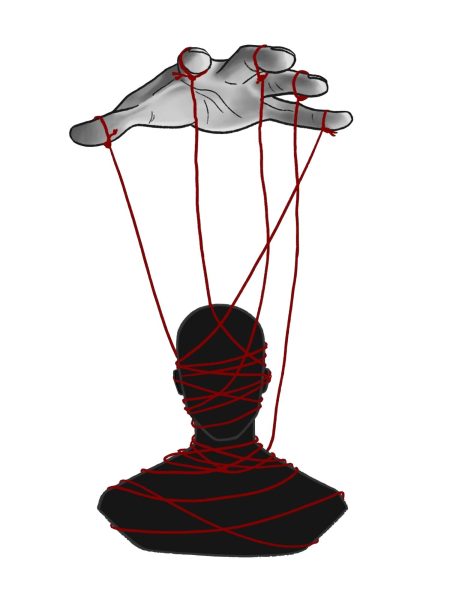Modeling and the media: how young women look at themselves in the mirror
February 15, 2021
It’s a Saturday night and a Redwood teenage girl sits alone in her room scrolling through her friends’ recent posts on Instagram. She swipes past photos from parties, scenic sunsets, and vacations. In each post she compares herself to the girls on the screen; their faces, their bodies and their lives are all so “perfect.”
Being a woman in the 21st century is not effortless; the constant criticism and societal pressure to fit a certain standard negatively affects many girls’ physical and mental health. According to another survey conducted by The Florida House Experience, which is an addiction treatment center in Florida, 88 percent of women say they compare themselves to images on social media. Half said that the comparison was not positive.
A main contributor to the unrealistic standards is the modeling industry, where female models are put under the spotlight now more than ever from social media. They post their photoshoots that have been airbrushed and face-tuned, giving off a “perfect” yet fake image to their followers.
In a 2018 interview by the Harper’s Bazaar magazine with actress Blake Lively and model Bella Hadid, Lively said, “99.9 percent of the time the images are Photoshopped. I’m guilty myself of being at a photoshoot and saying, ‘that looks terrible on me.’ And they’re like, ‘we’ll fix it.’”

A recent trend online is to make social media more “casual,” and many models post pictures that they claim to be natural, not wearing makeup or using photoshop. In reality, they still have makeup on and touch up their photos, just in a more subtle way. Many girls look up to Instagram models and believe they need to mirror the models’ looks and style to be deemed pretty. In fact, 64 percent of women felt that looking at photos on social media sites made them uncomfortable with their bodies, according to a 2014 survey conducted by Glamour magazine.
Junior Morgan Moseley has been modeling since she was 10 years old and is active on various social media platforms like Instagram and Pinterest. Additionally, she works with both Stars Management and Scout Model & Talent Agency and has modeled for brands such as Old Navy and Cole Mitchell. To Moseley, the modeling industry is even more critical than social media, as her body and appearance are constantly critiqued.
“The hardest part is getting criticism and direction because everyone has their opinion on how you look; the photographers all have opinions, and the makeup artists are commenting on your appearance. At first, that would get to me and annoy me, but I have gotten used to it over the years,” Moseley said.
With COVID-19 preventing in-person school, students now see their peers through screens and social media more than ever before. According to a study conducted by Ann & Robert H. Lurie Children’s Hospital of Chicago, 63 percent of teenagers are using social media more often than before the pandemic. Looking at each other’s lives through social media platforms, students are presented with an extremely selective facade.
Many girls experience this societal pressure to dress and look a certain way when they transition from middle school to high school, including freshman Alissa Wallace.

“We all kind of want to put on this face, and we want to say we’re someone we’re not. We want to show everybody that we are living this perfect life. The more we see [it] on social media, the more we’re going to feel obligated to show that and act like everything’s fine. It’s a cycle that continues,” Wallace said.
Angelica Gauptman experienced body dysmorphia and says social media was a driving cause. She is now more confident in herself but knows what it is like to be in the mindset where she was repeatedly comparing her body to others.
“When I was in middle school, if I didn’t get a certain amount of likes, I would immediately think it was because of my personal insecurities and because I didn’t look like somebody else in my grade who got 300 likes when I only got 150,” Gauptman said.
Inspired by herself and others’ experiences, Gauptman is starting a new club called “Body Positive” at Redwood for fellow students to learn that they are not alone in feeling pressure to look a certain way.
“[In the club], we are going to try to find the main causes of our insecurities and try to pinpoint certain aspects of our lifestyles that make us self-conscious. Then we are going to try and replace those with healthier habits,” Gauptman said.
The body positivity movement has taken a new approach to women’s beauty standards, advocating that every body is beautiful. Companies like Dove, Fenty, and Suave have started campaigns which display many different body types for advertising. Actions such as these as well as clubs like Gauptman’s will help continue to spread the body positivity movement and combat the beauty standards of social media.





















